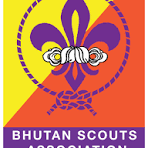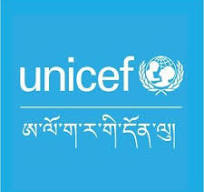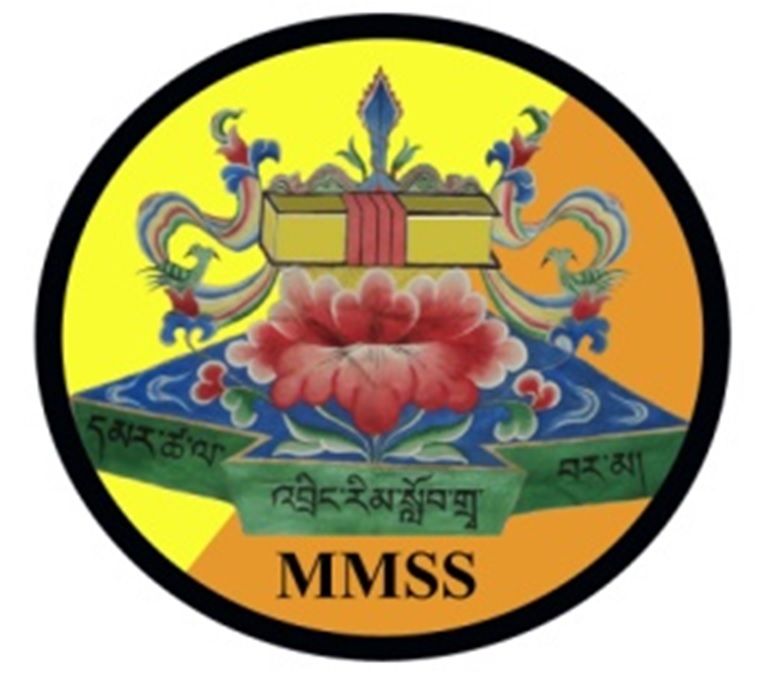About this project
In March 2025, Martshala Middle Secondary School from Samdrup Jongkhar, Bhutan took top honors in the junior category of the National Innovation Challenge 2025, triumphing with our inventive Bashika Soap project.
Martshala Middle Secondary School functions as a boarding institution, serving students primarily from economically disadvantaged, remote families, who reside on campus due to the distances involved. These students often cannot afford basic hygiene essentials, particularly soap, limiting their ability to wash hands and maintain personal cleanliness regularly. This lack of access sets a foundation for poor hygiene habits, which contributes to frequent illness, absenteeism, and ultimately undermines educational quality and equity. As per the School Health Record 2024, more 75% of the students were affected with the skin related diseases and could not attend the regular classes.
The research by (Tshomo, Gurung, Shah, Gil-Cuesta, Maes, Wangdi, R., & Tobden, 2021) shows that inadequate Menstrual hygiene management facilities like water, soap, and bins for disposal of absorbents in both hostels and college toilets, compromising the ability of the students to practice proper hygiene.
(Sharma, Adhikari, Khanal, , Acharya, & van Teijlingen, 2024) has a finding that Global and regional studies consistently demonstrate that inadequate Water, Sanitation and Hygiene (WASH) facilities, especially the absence of soap, significantly increase illness-related absenteeism among school children. A qualitative study in Nepal found that students in schools with poor WASH conditions frequently reported skipping classes due to dirty toilets, no water or soap, and resulting infections; these absences negatively influenced both health and academic performance . The study also shows that Teachers also observed that poor sanitation and hygiene facilities impacted both students’ wellbeing and attendance.
Research suggests that “A systematic review of WASH interventions in low-income contexts reported reductions in student absence ranging from 21% to 61%, with one study indicating a 58% reduction in girls' absenteeism after hand-washing and sanitation improvements”. (McMichael, 2019). (Sharma and Adhikari, 2022) also stated that Evidence from Kenya showed a 35% decline in absenteeism following school-based hygiene interventions including soap and water treatment.
In the context of Martshala Middle Secondary School, students living in hostels without reliable soap or clean sanitation are at high risk of particularly ringworm (tinea) and scabies and diarrhoeal are a major health concern among the borders that are strongly linked to water and inadequate hygiene management.
These hygiene challenges are rooted in structural limitations: students from poor families do not have the purchasing power to buy soap or menstrual supplies routinely, while the school’s boarding infrastructure may lack consistent soap supply, separate clean toilets, or supervised cleaning routines. This creates a self-reinforcing cycle: insufficient hygiene leads to illness, causing students to miss school, which then diminishes academic achievement and perpetuates educational inequality.
This challenge is particularly acute in gender-sensitive terms: girls without soap or private sanitation for menstrual management are more vulnerable to missing classes and falling behind academically. Boys, too, suffer from general hygiene-linked illnesses that cause absenteeism and cognitive disruption.
Therefore, our project is addressing the following core problem:
“At Martshala Middle Secondary School, boarding students from low-income backgrounds are unable to afford soap or access clean sanitation facilities, leading to repeated hygiene-related illnesses and school absenteeism, which in turn undermines their academic performance and overall educational quality.”
This problem is critical because educational attainment is undermined when students miss school—especially when they are already vulnerable due to poverty. Interventions that ensure soap availability, sanitation upgrades, and hygiene education are proven, cost-effective strategies to reduce absenteeism and improve learning outcomes, particularly in low-resource school settings .
To address this problem, the group of youth came up with a project that can help break the cycle of absenteeism, support better health outcomes, improve attendance, and enhance the educational opportunities for some of Bhutan’s most marginalized students.
“Justicia Adhatoda” plant is known as “Bashika” in our local languages. Therefore, we keep our product as Bashika Soap. Bashika Soap is committed to advancing the Sustainable Development Goals by promoting clean water and sanitation through its eco-friendly formulations that minimize water pollution. By using natural, biodegradable ingredients, the brand encourages responsible consumption and reduces chemical waste. Additionally, Bashika Soap supports climate action by adopting sustainable production practices that lower carbon emissions. Finally, by sourcing ingredients ethically and protecting biodiversity, it contributes to preserving life on land and fostering healthier ecosystems.
Goals and Objectives
Vision
Our Vision is to Provide affordable and eco-friendly product from sustainable resources and become one of Bhutan’s leading organic soap manufacturers, promoting health and hygiene in schools while advancing national economic development through youth employment and import substitution.
Mission: Hygiene for Health, Education for Equity
Our enterprise is built on a simple yet powerful mission: “Promote hygiene and support education by producing affordable, organic Justicia adhatoda soap for boarding schools.” By ensuring low-cost access to soap, especially among students who otherwise cannot afford it, we aim to reduce hygiene-related illness and absenteeism, ultimately enhancing learning continuity and academic performance.
Objective
i.Provide high quality soap
ii.Maintain hygiene at all level.
iii.Provide affordable and eco-friendly soap.
The Bashika Soap initiative is poised for long-term sustainability and scalable impact due to its integration of local resources, institutional support, and alignment with national WASH (Water, Sanitation, and Hygiene) priorities. With Nu 100,000 in seed funding, Martshala Middle Secondary School is now positioned to continue production and potentially establish small-scale in-school manufacturing, empowering students and staff with ownership of the process. Crucially, the Ministry of Education and UNICEF have committed to field monitoring and support, and are open to facilitating additional resources if needed, offering an enabling framework for the project’s continued growth and adoption by other schools.
Given Bhutan’s broader push toward improved hygiene in schools—including efforts to make schools period-friendly and expand WASH infrastructure nationwide- the Bashika Soap model aligns well with national agendas. Its low-cost, plant-based formulation and adaptability to local contexts make it highly replicable—other schools facing similar health and cost challenges could adopt or adapt the approach with relative ease. By embedding the project within existing education and sanitation frameworks and leveraging its demonstrated social value, the Bashika Soap initiative has real potential to scale across Bhutan’s school network sustainably.
Expected result
1. Specific & Achievable Production Goals
The Bashika Soap project aims to produce 500 bars of organic soap per month, using locally sourced Bashika flowers and basic soap making ingredients. The initial seed funding of Nu 100,000 that we received as a prize money is allocated to procurement of raw materials and production equipment, empowering students and staff to operate a small in school manufacturing unit. This target is realistic for a school setting and directly addresses the problem of high-cost commercial soap.
2. Measurable Health Impact on Students
A baseline hygiene survey conducted at the project's inception revealed that 75% of students experienced recurring skin conditions related to poor hygiene. Within six months of introducing Bashika Soap, the objective is to reduce that incidence to under 10%, measured via monthly health check ins by school health workers. This creates clear, measurable benchmarks tied to student well being.
3. Relevant Educational and Hygiene Outcomes
The initiative directly supports the school’s commitment to student health and aligns with national WASH priorities. By embedding soap production into practical learning, students not only gain vocational skills but also promote sustainable hygiene practices. The relevance is further validated by the Ministry of Education’s partnership with UNICEF for field visit monitoring and provision of support as needed.
4. Time Bound Scaling Strategy
Within the first 12 months post launch, the school plans to expand distribution to at least three nearby boarding schools, supplying a total of 1,500 bars per month by month twelve. Progress will be tracked quarterly through records of bars produced, sold or donated, and partner school feedback surveys on usage and skinhealth outcomes.
5. Capacity for Monitoring & Sustainability
The school will establish a Soap Production Logbook, maintained by students, tracking quantities produced, resource usage, and distribution receipts. Alongside this, hygiene outcome charts will record monthly data from school clinics. Annual report reviews, in collaboration with MoESD and UNICEF during their field visits, will assess whether targets are met—allowing for timely course corrections and ensuring the initiative's sustainability beyond the initial funding.
This SMART aligned framework—specific goals, measurable results, realistic ambitions, relevant context, and time bound scaling—ensures the Bashika Soap project remains impactful, transparent, and monitorable.
Partners



About me / organisation
1.Thukten Wangmo (F) ‘X’ . 2.Kezang Choden (F) ‘X’ . 3.Rinchen Phuntsho Choden (F) ‘X’ 4.Sonam Pelzom (F) ‘X’ 5.Pema Yangden (F)‘X’ 6.Tshering Needrup (M) ‘X’ 7. Ngawang Dorji (Mentor)
All the Project Leaders are age of 18 and above and all of them are active in scouting activities, innvation and good at creativity.
Website